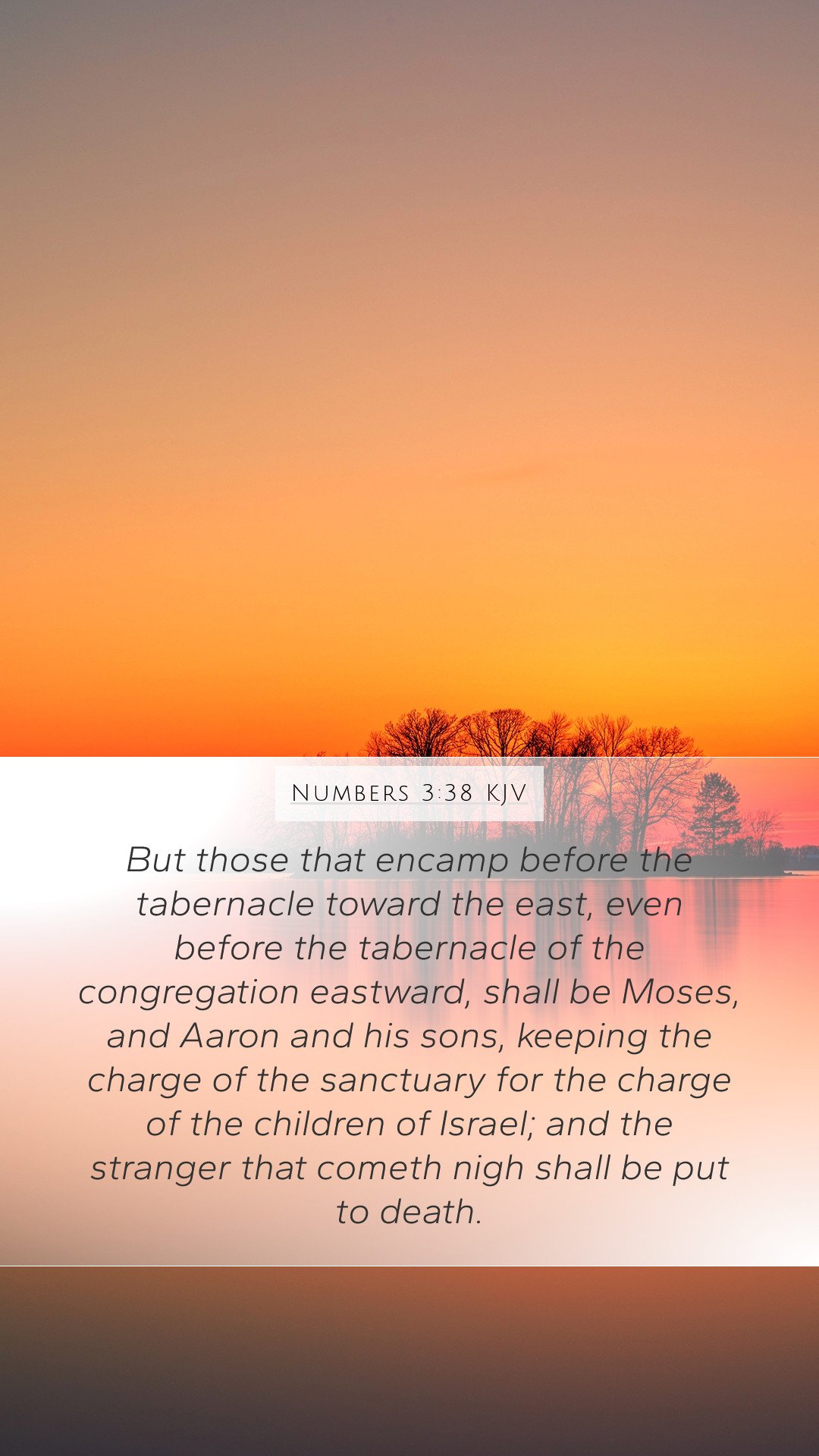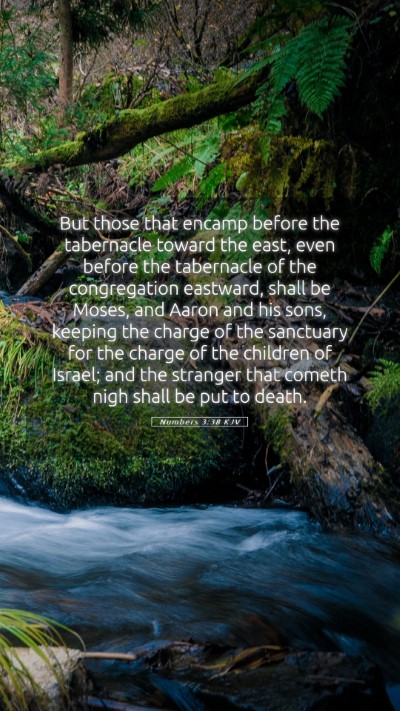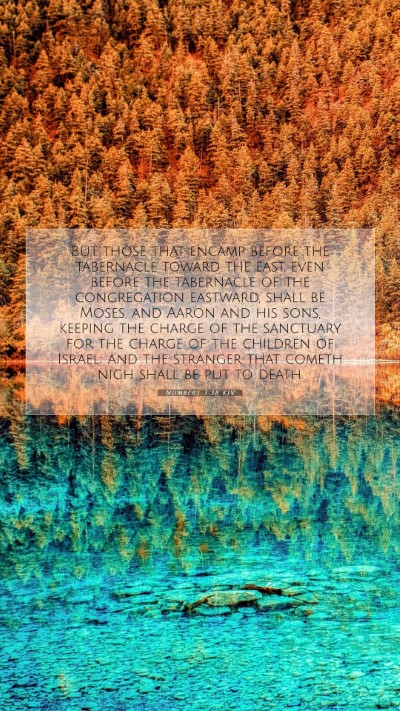Bible Verse Commentary on Numbers 3:38
Verse Context: The verse Numbers 3:38 details the specific duties and locations of the Levites in relation to the tabernacle. The Levites had a distinct role in the Israelite community, serving in the sanctuary and being set apart for the holy purpose of ministry.
Verse: "And those that encamp before the tabernacle eastward, even before the tabernacle of the congregation, toward the east, shall be Moses, and Aaron and his sons, keeping the charge of the sanctuary for the charge of the children of Israel; and the stranger that cometh nigh shall be put to death."
Meaning of Bible Verses: Insights from Commentaries
This verse provides insight into the order and sanctity of the Israelite camp, where the positioning of the leaders and the Levites illustrates the significance of structured ministry and divine service. The primary responsibilities given to Moses, Aaron, and his sons emphasize the importance of their roles in maintaining the holiness of God’s dwelling among His people.
Summary of Commentary Insights
- Matthew Henry:
Henry emphasizes the position of the priests, noting that they were encamped at the eastern side of the tabernacle, representing the first line of defense in preserving the sanctity of the holy place. This placement symbolizes leadership and the importance of divine order within the community.
- Albert Barnes:
Barnes highlights the role of Moses and Aaron as essential intermediaries between God and the people. Their charge was not only to protect the sanctuary but to ensure that the worship and rituals were conducted according to divine regulations. Barnes points out the seriousness of the warning against any unauthorized approach to the sanctuary, underscoring the consequences of approaching God without proper authority.
- Adam Clarke:
Clarke discusses the geographical and spiritual significance of the eastern position of the camp. He notes that this orientation towards the morning sun symbolizes new beginnings and the presence of God shining upon His people. Additionally, Clarke reiterates the dire consequences listed for those who dare to intrude upon this sacred space, which stresses the reverence required in approaching God.
Understanding Scripture: Key Themes
- The Call to Holiness:
The passage illustrates that approaching God requires holiness and that leaders are held to a higher standard, reflecting how modern believers must understand God's expectations of purity and dedication in worship.
- The Role of Leaders:
Moses and Aaron represent not just leadership but the responsibility that comes with it—leaders must guide their communities in faith and keep the congregation aligned with God’s will.
- Divine Order:
The structure of the encampment reflects God’s desire for order among His people, a theme prevalent throughout the Scriptures, which encourages believers to seek an ordered and righteous life.
Bible Study Insights
This verse serves as a reminder for Bible study groups to explore the historical context of Israel's worship and leadership roles. It offers a foundation for discussions about the importance of order in worship and how it applies to contemporary church settings. It also invites reflection on personal holiness and leadership within our communities today.
Cross References
- Exodus 30:10 - Discusses atonement for the altar.
- Numbers 1:50 - Describes the duties of the Levites.
- Exodus 19:22 - Highlights the sanctification of the priests.
Application of Bible Verse
Understanding the significance of Numbers 3:38 encourages individual believers to reflect on their approach to God and the necessity of reverence in worship. It invites questions such as:
- How does the structure of worship in our churches reflect God’s design?
- In what ways can we uphold the holiness of our worship practices?
- What responsibilities do leaders in our community have in guiding others towards God?
Conclusion
Numbers 3:38 offers profound insights into the character of God, the nature of worship, and leadership within the faith community. By studying this verse and its commentaries, believers can better understand Scripture, apply its lessons to their lives, and appreciate the sanctity of God’s presence among His people.


